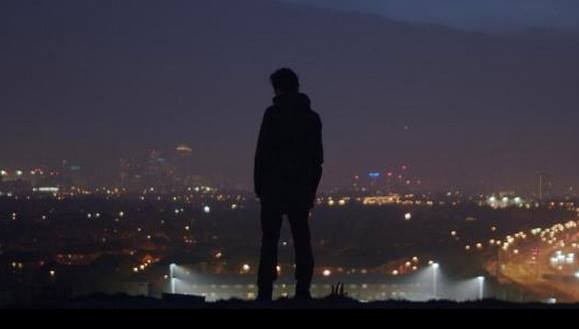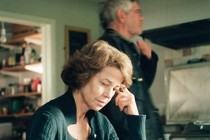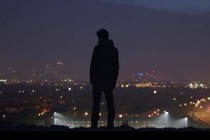VENICE 2014 Biennale College Cinema
Blood Cells: a post-traumatic Britain
- British newcomers Luke Seomore and Joseph Bull have presented their first feature film in Venice's Biennale College - Cinema sidebar

As Blood Cells [+see also:
trailer
film profile]’ hellish opening images hauntingly show, this is a film born out of the smouldering scars which Mad Cows Disease left all over the British landscape. Images such as these were painfully seared onto the British imaginary in recent decades, and the resultant problems which arose across the UK were both lasting and far-reaching. It is no surprise, then, that it is only now that writers like Luke Seomore and Joseph Bull feel ready to deal with the difficult issues which were often overlooked at the time. Nor is it remarkable that all the struggles portrayed are primarily depicted as stemming back to these events.
The plot of this film, which makes up one of three offerings from the 71st Venice Film Festival's Biennale College collection of films and was part of the Sala Web screenings selection, powerfully depicts the personal spiral many British farmers faced in the aftermath of exterminating herds which they had been so emotionally and financially invested in. The culls enforced by the government as a safety measure lead to widespread financial and social uncertainty, which in turn brought despair and hopelessness. This film is very sophisticated in representing that arid path to despair. Blood Cells proves to be a swampy, atmospheric feature, where a slow pace potently conveys the pervasive forlornness it stages. What we see plays out almost like a British take on the Beat movement, with the protagonist Adam seemingly pointlessly roving between moody, overbearing British towns. And the British drug of choice, alcohol, never remains far out of his reach, numbing the pain of an almost biblical expulsion from the edenic agrarian world which he grew up in.
And as idyllic as some of these recounted fragments of youth can seem, though, past in this film is also intrusive and sits obtrusively amidst the present. The question of how we negotiate such a past becomes as pressingly important in this piece as it often was in previous British cultural movements, from Oscar Wilde to T.S. Eliot. In answer to this question, the fiery leitmotifs and rushing aural crescendos all seem to forcefully suggest the past will overwhelm all of us eventually, and make the world a smothering place.
The people in the British society we see are not necessarily all that unpleasant, but this society’s grey, lugubrious realities seem oppressively bleak and makes ghosts of these same people who had once lived these joyful pasts. One key recurring past trauma in this film also plays out in an almost Freudian manner: this fundamental source of pain is revisited over and over, and elements are both supressed or involuntarily released. This isn’t really a satisfying experience, but it is one which slowly raises an emotional response in you, like mercury rising in a thermometer.
Did you enjoy reading this article? Please subscribe to our newsletter to receive more stories like this directly in your inbox.


















